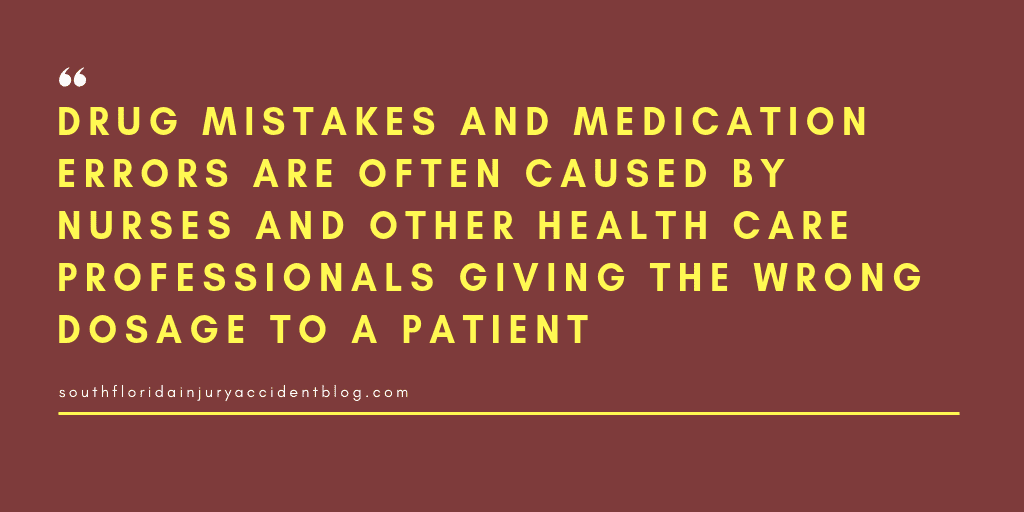Last Update: 01/25/16
Bad Handwriting Kills People: The Sad Truth of Misread or Illegible Doctor’s Medicine Notes or Dosage Instructions
Doctors are notorious for having bad handwriting, but many people are unaware of how serious a physician’s poor penmanship can be: drug mistakes and medication errors are often caused by nurses and other health care professionals giving the wrong dosage to a patient – all because they misread the instructions given by the doctor on the chart or in the file.
One research study revealed that the amount of medication errors and medicine mistakes involving doctor’s bad handwriting was a shocking 37 errors for 100 prescriptions (37%). Science Daily reports that this number may be much higher, with as much as 61% of the medication errors taking place in hospitals being the result of a physician’s handwriting that is simply too hard to read correctly, or from a transcription error when someone tried to decipher what the doctor had written.
Medication errors are so commonplace among medical professionals that these medicine mistakes have a nickname: they’re called an “ADE” (for “Adverse Drug Event”). When these ADEs cause serious injury or death all because someone’s handwriting isn’t legible, then it’s a real injustice since these are obviously preventable events.

Example: Doctor and Hospital Sued for Wrongful Death in Texas for Drug Mistake; Hospital Settles and Doctor Found Liable
Consider a case out of Texas this week, where the poor penmanship of a doctor was so impossible to read by anyone else that a patient was killed by a fatal medication error, as a kidney dialysis patient hospitalized for amputation of a toe was given 120 millimoles of potassium instead of the prescribed 20 millamoles.
At trial, the doctor explained that he had decided to up the dosage from 10 to 20, and used his pen to change the “1” to a “2.” Seems like an easy enough thing to do, right?
Except it was read not as “10” or as “20” but as “120” — and as a result, the 72 year old woman died from an overdose of potassium. The doctor argued that this was not all his fault, because 120 millimoles of potassium is so over the range of acceptable dosages for a human that anyone on the hospital staff — any nurse, any lab tech, any doctor or nurse practitioner – would know (or should have known) that 120 was the wrong number.
The jury found for the family and against the doctor this week in a jury trial; the hospital has already settled with the patient’s family.
Long ago, whether or not a doctor had bad handwriting was not such a big deal, because they were always around to answer questions and oversee things. In today’s modern medical environment, doctors aren’t always hands-on with their patients, especially during their hospital stay. Much of the health care given to patients today is by non-physicians, who have been delegated the task of one-on-one care of the patient.
These preventable ADEs are shameful, and rarely are they going to be freely acknowledged by the health care providers to the patient or their family. If you or a loved one suspect that you are a victim of an ADE or medication error, then you may need professional investigation and legal assistance to discover the truth and get justice. Medicine mistakes and drug errors are seriously harming people and medication errors are killing patients all over the country, but the health care industry isn’t going to help victims voluntarily.
What Should You Do?
A good piece of advice if you or a loved one has been harmed because of a medical provider’s error, is to at least speak with an experienced personal injury lawyer before you file a claim to learn about some of the issues that can arise with these claims, including the type of evidence needed to prove a claim and the type and amount of damages you can recover. Most personal injury lawyers, like Alan Sackrin, will offer a free initial consultation (over the phone or in person) to answer your questions.
Related:
- The Medication Error Index and the Medication Errors Reporting Program: Tracking Patient Injury and Patient Deaths Due to Medication Errors and Drug Mistakes
- Video: FDA Advice to Doctors and Physicians on How to Avoid Medical Errors Made Due to Illegible Prescriptions or Doctor’s Notes
- Medication Errors and Drug Mistakes: Bad Communication Between Medical Professionals Hinders Patient Safety From Medication Errors and Drug Mistakes
_______________
 Do you have questions or comments? Then please feel free to send Alan an email or call him now at (954) 458-8655.
Do you have questions or comments? Then please feel free to send Alan an email or call him now at (954) 458-8655.
If you found this information helpful, please share this article and bookmark it for your future reference.
